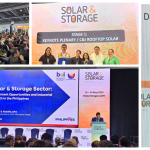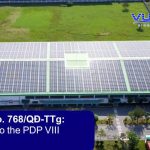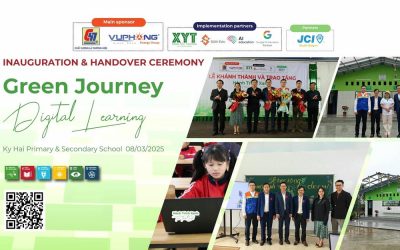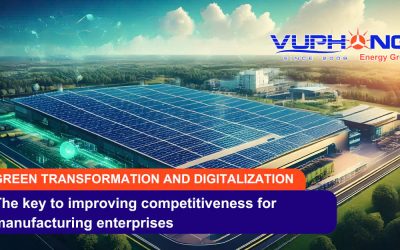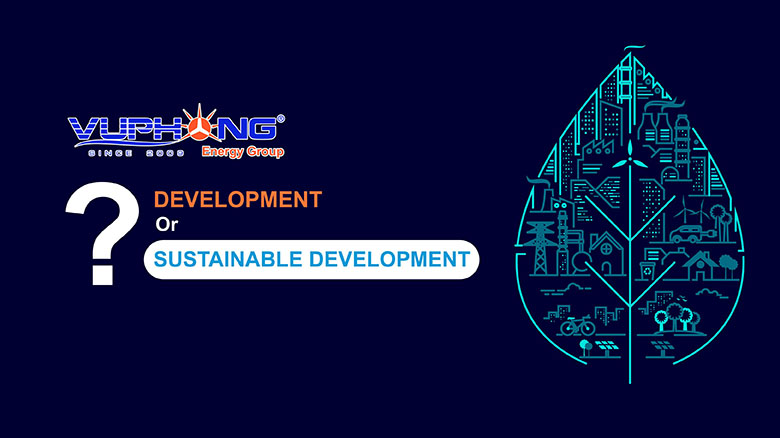
Sustainable development is recognized as an inevitable trend in the global development process. What is the difference between development and sustainable development exactly?
- Circular economy development – An inevitable trend for green growth goal
- Circular economy – The foundation for Vietnam’s sustainable development
- What are the advantages of businesses pursuing sustainable development?
The concept of development and sustainable development
To understand the distinction between development and sustainable development, one must first understand the concepts of the two terms. The term development appeared before the term sustainable development and initially referred to creating material wealth to meet basic human needs. After World War II, the concept of development was expanded to refer to the economic growth of sectors across the economy; attention was paid to the economic structure, and focus was put on industries that spearheaded the economy. By the early 1990s, the definition of development had shifted once more to include social and human factors in addition to the meaning of economic growth.
Parallel to the development of society, the concept of development has gradually been perfected, including economic growth, economic structural advancement, and social progress. Development may be defined as the process of implementing economic restructuring to give people a better living environment and social benefits.
Meanwhile, the term sustainable development appeared later, first appearing in the World Conservation Strategy in 1980. However, at the time, sustainable development was used to refer to ecological sustainability to argue for the conservation of biological resources. Sustainable development was officially published in 1987 in The Brundtland report of the World Commission on Environment and Development (WCED). Sustainable development is defined as development that satisfies current demands without compromising future generations’ ability to meet their needs.
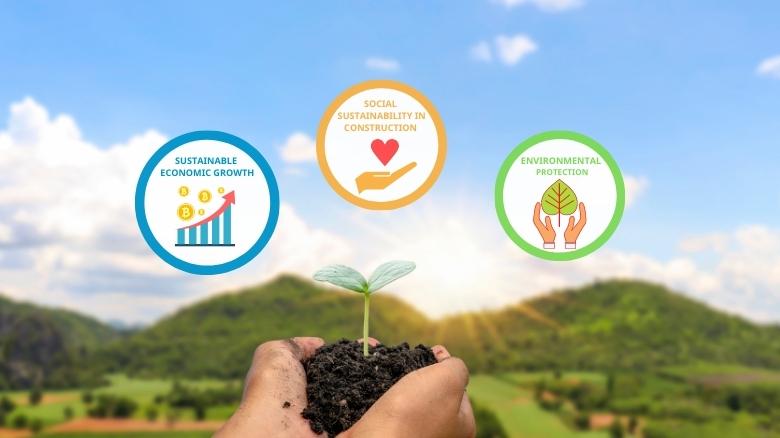 Sustainable development on three dimensions: economic, social and environmental
Sustainable development on three dimensions: economic, social and environmental
Until the Rio de Janeiro Earth Summit in 1992 and the Johannesburg Summit in 2002, sustainable development was affirmed and generalized on three dimensions: economic development, social development, and environmental protection. The United Nations has adopted 17 Sustainable Development Goals (SDGs), composed of 169 specific goals and 232 targets aimed at eradicating poverty, protecting the environment, and ensuring that all people live in peace and prosperity by 2030.
More: https://vuphong.com/what-are-the-17-sustainable-development-goals/
The difference between development and sustainable development
As a result, as compared to development, sustainable development has more requirements. The difference between development and sustainable development can be seen in various ways. For example, while the economy (and society) is the pillar of development, sustainable development is a close and harmonious mix of socio-economic and environmental development. Material wealth/commodities are at the heart of the development paradigm, but sustainable development is people-centered. Natural resources are the basic condition for development; human resources are the basic condition for sustainable development. Development in connection with the environment is oriented toward exploitation and reclamation, whereas sustainable development is oriented toward conservation and reasonable usage.
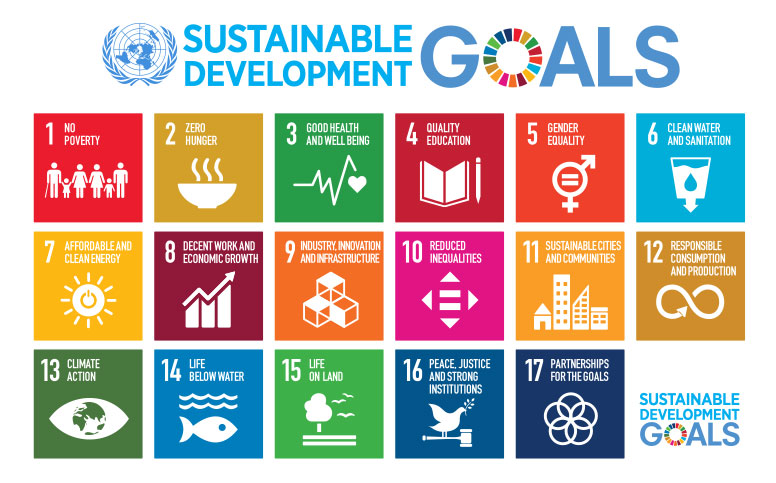 17 United Nations Sustainable Development Goals
17 United Nations Sustainable Development Goals
Every country in the world aims for sustainable development. This is also an urgent need of the times, as finite resources are gradually exhausted, and climate change is followed by increasingly severe weather conditions, requiring humankind to implement, develop and maintain harmony with the living environment. Each organization will prepare the most appropriate sustainable development strategy based on the development situation and special characteristics of the economy, society, politics, geography, and culture… of each country.
Why sustainable development is important
In the next section, we will explore the reasons why sustainable development is important for the prosperity of our planet, and why it must be a top priority for everyone.
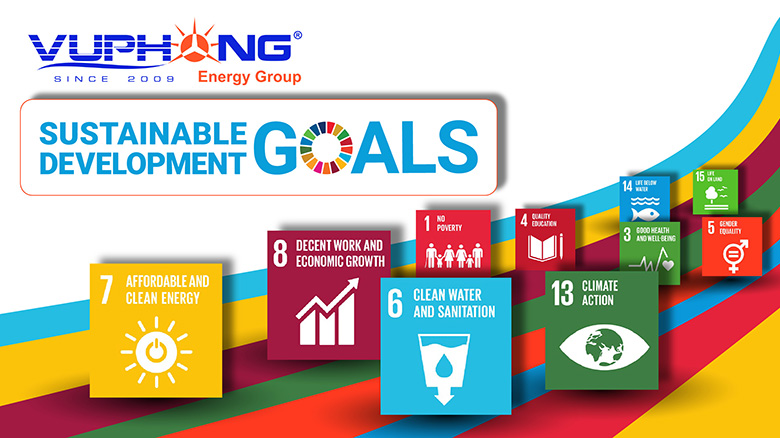
Environmental Impact of Unsustainable Development
Unsustainable development has led to severe environmental degradation, including deforestation, air and water pollution, loss of biodiversity, and climate change. These environmental issues not only impact the health and well-being of humans but also of animals and plants that are essential to the ecosystem. The effects of climate change are already being felt across the world, with increased frequency and intensity of natural disasters like hurricanes, floods, and wildfires.
Social and Economic Implications of Unsustainable Development
Unsustainable development also has significant social and economic implications. The over-exploitation of natural resources has led to the depletion of non-renewable resources, which are essential for economic growth. This, in turn, has led to economic inequality and poverty, with marginalized communities being hit the hardest.
Sustainable Development as a Solution
Sustainable development offers a solution to these challenges. It aims to balance economic growth, social development, and environmental protection, ensuring that future generations can meet their needs without compromising the ability of the planet to support life. The following are some reasons why sustainable development is essential:
- Resource Conservation: Sustainable development promotes the conservation of natural resources, including water, air, and land. This ensures that these resources are available for future generations to use.
- Economic Growth: Sustainable development supports economic growth by promoting sustainable practices that conserve resources and minimize waste.
- Environmental Protection: Sustainable development ensures that natural resources are used in a way that minimizes harm to the environment, protecting the planet for future generations.
- Social Equity: Sustainable development promotes social equity by ensuring that economic growth benefits all members of society, especially marginalized communities.
- Public Health: Sustainable development promotes public health by minimizing exposure to harmful pollutants, promoting access to clean water and air, and reducing the risk of natural disasters.
When sustainable development started in Vietnam
In Vietnam, Sustainable development started to gain attention in Vietnam in the 1990s, when the country was transitioning to a market-oriented economy and experiencing rapid economic growth. In 1991, the Vietnamese government adopted its first policy on sustainable development, which emphasized the need to balance economic growth with environmental protection and social equity
Since then, sustainable development has become a cross-cutting point in Party and State policies and has been integrated into the Socio-Economic Development Strategy 2011-2020, the Socio-Economic Development Plans for 2011-2015, and 2016-2020. The Prime Minister has also issued many decisions on sustainable development, including the Vietnam Sustainable Development Strategy for the period 2011-2020, the National Action Plan to implement the 2030 Agenda for Sustainable Development (in 2017), the Roadmap for Implementing Vietnam’s Sustainable Development Goals to 2030 (in 2019), and the Resolution on Sustainable Development (in 2020)…
Many businesses in Vietnam are actively implementing solutions to develop sustainably after having recognized the difference between development and sustainable development, as well as the benefits that sustainable development brings. Many companies, including Vu Phong Energy Group, have been working toward the United Nations’ Sustainable Development Goals. At Vu Phong Energy Group, the following goals are particularly focused in the series of sustainable development goals that Vu Phong pursues: Goal 7 – Affordable and clean energy, Goal 8 – Decent work and economic growth, Goal 6 – Ensure water and sanitation for all, Goal 13 – Climate action and Goal 17 – Partnerships for the Goals.
Vu Phong Energy Group

